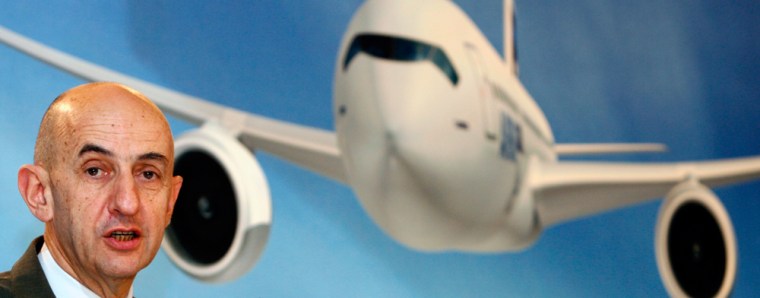Airbus kicked off a $13.2 billion plan Monday to build its A350 XWB wide-bodied jet, which is designed to compete with Boeing's successful 787 and boost the fortunes of the troubled European planemaker.
CEO Louis Gallois told a news conference that the A350 will be funded through the savings generated by a painful cost-cutting plan, from cash flow and from Airbus' partners. The cost-saving plan was announced in the wake of delays to the A380 superjumbo and management turmoil that has shaken the company and its parent, the European Aeronautic Defence & Space Co.
EADS approved the A350 plan on Friday. No timetable was released, and it remained unclear where the plane will be made. Gallois said labor unions and local authorities will be informed at the beginning of 2007 of the locale.
Shareholders called off an earlier board meeting amid a dispute over how the plane would be funded. Gallois said Airbus could go to the market for capital, but that such a move was not currently under consideration.
He said Airbus's finances are sound. "We have a very strong cash position for the time being," he said, adding that the only constraint imposed by the EADS board for financing was that Airbus must strive to conserve a strong balance sheet and uphold the company's credit rating.
He said the peak financing need for the A350 will occur between 2010 and 2013.
The new plane is badly needed to fill a gap in the Airbus product line and stem a loss of business to Chicago-based Boeing Co. After concentrating massive resources on its flagship A380, the world's biggest passenger plane, Airbus has been outmaneuvered by Boeing's two-engine 787, which delivers better fuel economy than older four-engine Airbus jets in the same size category. As fuel prices rise, the fuel-efficiency sales argument has grown more persuasive.
